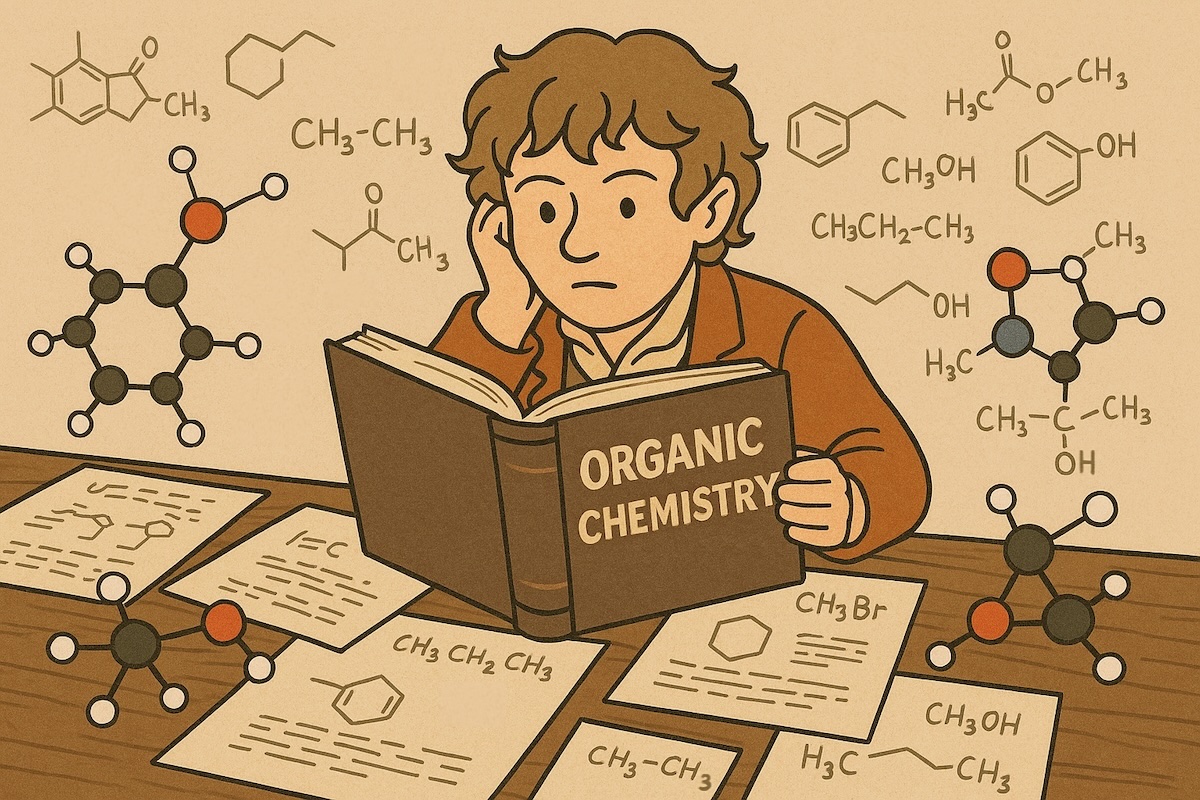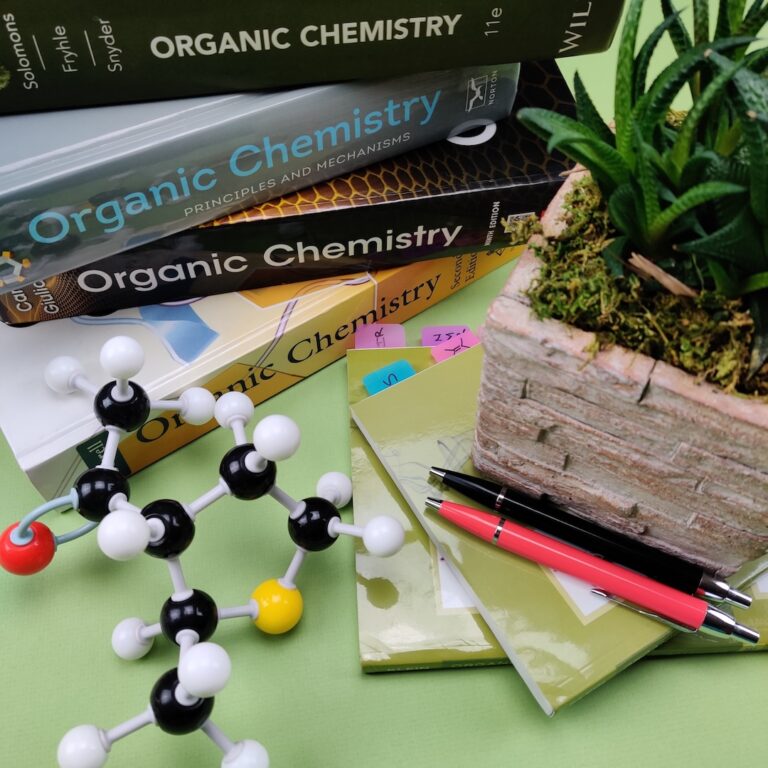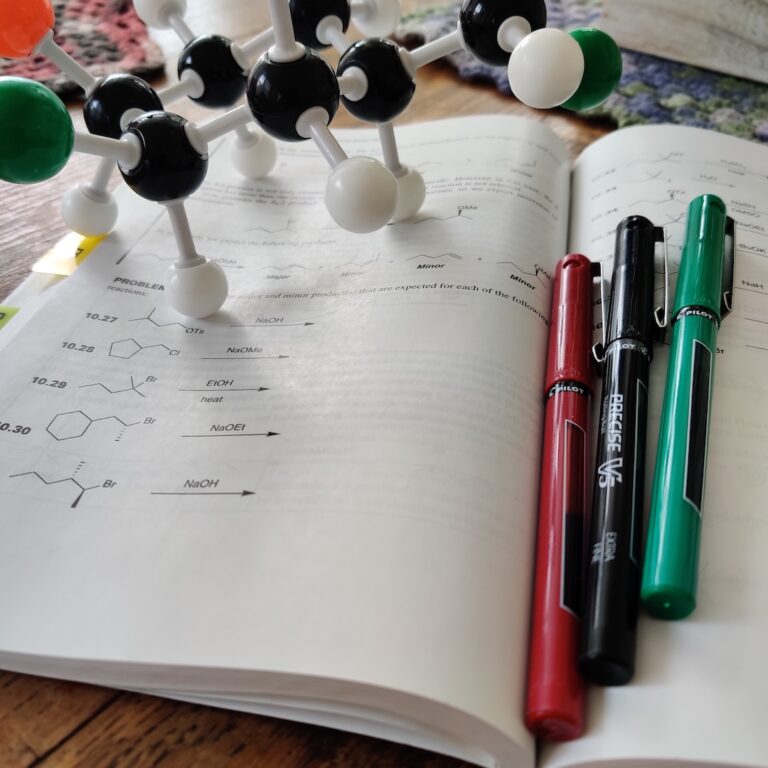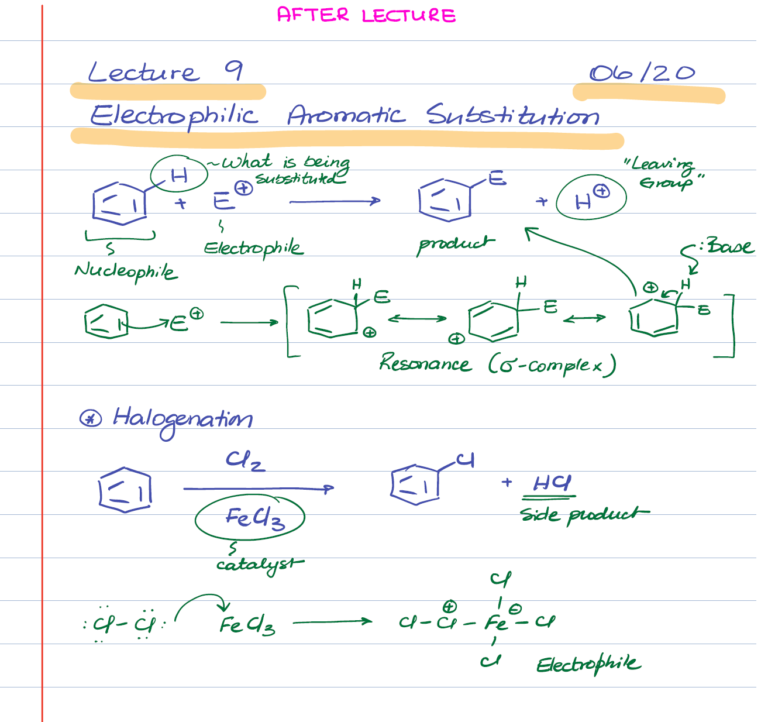Starting Organic Chemistry: A Journey Worth Taking
“It’s a dangerous business, going out your door. You step onto the road, and if you don’t keep your feet, there’s no knowing where you might be swept off to.”
Bilbo Baggins might have been talking about a grand adventure through Middle-earth, but the feeling he describes resonates just as powerfully with anyone staring at the first chapter of an organic chemistry textbook. It’s not dragons or trolls you fear, but reaction mechanisms, curly arrows, and a language that feels like it was invented to confuse rather than clarify.
And if you’ve found yourself returning to the same spot again and again—feeling like you’re stuck, unable to move forward, watching the same mountain from the same trailhead—know this: you are not alone!
Why Organic Chemistry Feels So Daunting
Organic chemistry has a reputation. Even before you start, you hear stories. Tales of monstrous exams, terrifying professors, and sleepless nights scribbling skeletal structures and chasing electrons. It doesn’t help that the subject comes with a steep learning curve. Unlike general chemistry, which often feels equation-driven and rules-based, organic chemistry is conceptual. It demands spatial thinking, pattern recognition, and a willingness to accept that memorization will only get you so far.
But the most intimidating part? You open the book and you don’t even know where to begin. It feels like the book is already ten steps ahead of you, like it assumes you’re halfway through the journey before you’ve even packed your bag.
The First Step is the Hardest
Back to Bilbo. When he left the Shire, he didn’t know what he was doing. He didn’t have a sword. He didn’t have a plan. And he certainly didn’t see himself as someone capable of slaying spiders, outwitting dragons, or saving kingdoms. All he had was a nudge out the door and the decision to keep walking.
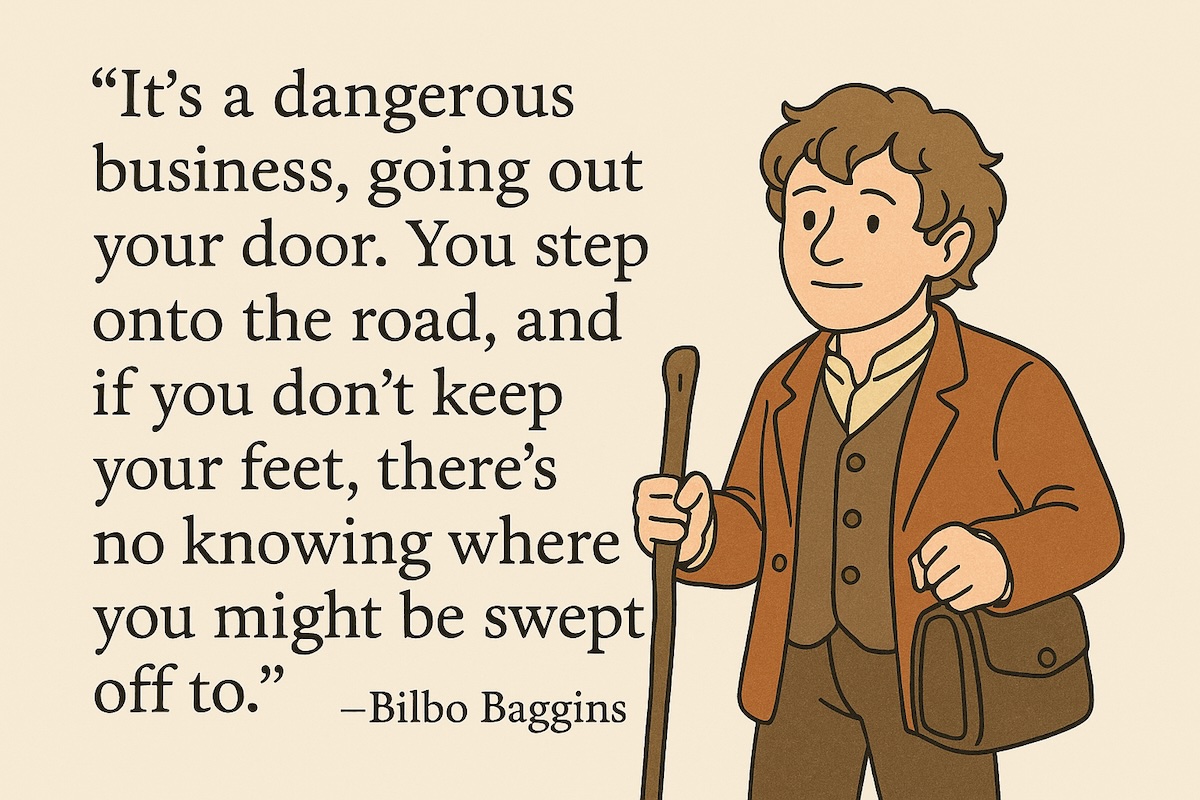
And that’s all you need here.
You don’t need to understand aromaticity or stereoselectivity right now. You don’t need to memorize all the reactions or predict the product of a Diels-Alder reaction off the top of your head. You just need to start.
Pick a topic. Something small. Functional groups. Hybridization. Acidity. Something that feels manageable. Don’t worry if it doesn’t feel like “real organic chemistry” yet. That part will come. Right now, your job is to take the first step and not turn back.
You Are Not Behind
It’s easy to feel like you’re late to the party. Maybe your peers are already talking about SN2 versus SN1 like it’s casual breakfast conversation. Maybe you feel like you’ve “ranted” one too many times about being stuck and not moving forward.
But learning—real learning—is never a straight line. It’s not a race. It’s a series of loops, missteps, and course corrections. Progress often looks like circling the same concepts again and again until one day they suddenly click. And sometimes the most powerful progress comes not from racing ahead, but from refusing to quit.
You’re not stuck because you’re lazy or incapable. You’re stuck because you care. You want to do well. You want to understand. That resistance you feel? It’s the weight of something meaningful. And pushing through it, step by step, is what makes the journey worthwhile.
Find Your Fellowship
Even Bilbo had help. Gandalf, the dwarves, even Gollum in his twisted way. Organic chemistry isn’t meant to be conquered alone either. There are guides, tutors, study groups, videos, forums, and communities of learners all around you.
Ask questions. Find people who explain things in a way that makes sense to you. Don’t be afraid to admit you’re struggling—chances are, someone else is in the same boat. And when you get through that tricky topic, when you finally understand why the hydride attacks there and not here, pay it forward. Be someone else’s Gandalf.
It’s a Journey Worth Taking
Here’s the thing no one tells you at the start: organic chemistry can actually be fun. Once the fog clears, it becomes this elegant puzzle where everything fits together in a surprisingly logical way. The electrons move with purpose. The reactions follow patterns. The chaos turns into structure.
It trains your brain to think in new dimensions. It gives you insight into how the molecules of life operate. And it opens doors—to medicine, research, pharmacology, environmental science, and more.
But even if you never use it again after the final exam, mastering organic chemistry gives you something more valuable than a grade. It shows you that you can walk into the unknown, face down your doubts, and learn something hard. That confidence? That’s yours to keep.
So if you’re standing at the edge, unsure whether to step forward again, let me tell you: the road is still there. It’s waiting for you. And no matter how many times you’ve turned back before, the first step is always open.
Take it. We’ll walk with you. Maybe where you’re going you’ll find something truly amazing.

